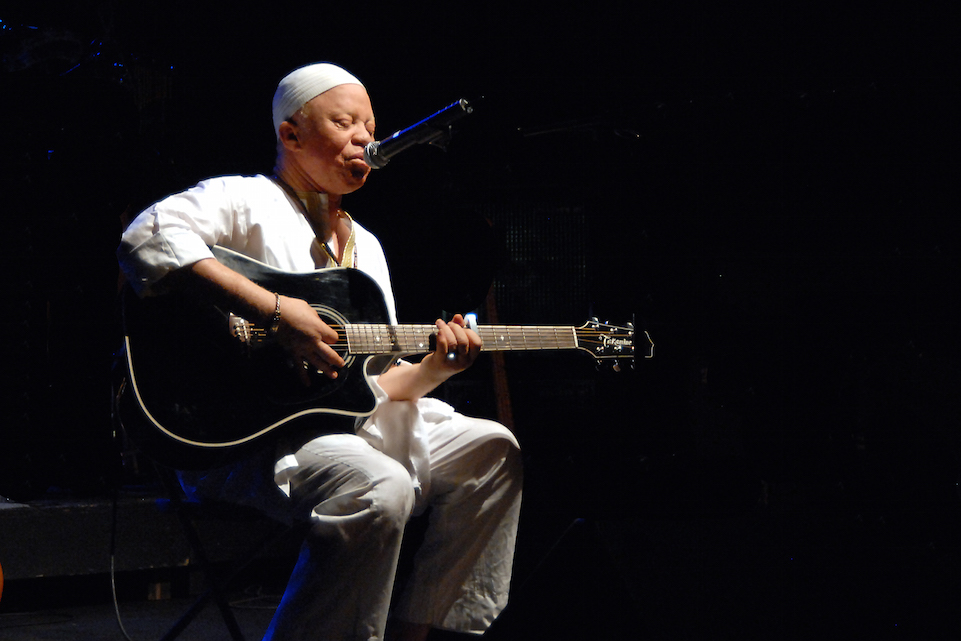People said he was cursed. Schoolchildren avoided him. His father sent him to live on the streets when he was a teenager.
Mali musician Salif Keita could be a bitter, angry man, but instead, he writes beautiful songs about life, love and fighting prejudice. His most recent is the plaintive “Folon.” The word folon means the past in Keita’s native tongue, Bambara.
“In the past/ no one wanted to know/ In the past, whatever happened, you could not speak about it/”.
Keita has lived through political turmoil, spending 15 years in exile during Mali’s military dictatorship. “Folon” is about his homeland’s return to democracy, but it could just as easily be about Keita’s own life. Born albino, he was ostracized by his village and his family, and left to live on the streets as a teenager. He found his voice and his salvation in music. Today, he has earned a place among the best and brightest on the world music scene and is frequently called the golden voice of Africa.
“Music is my life, my freedom. It gives me the opportunity to talk to people. To tell them what I want and what I feel,” he said in an interview with PBS Newshour in 2015.
Cast away by his family, Keita made his own living in Mali’s capital, Bamako, by drawing on his heritage, peppered with his own experiences as a pariah. Music and storytelling came naturally to Keita, who came from a family of griots, or storytellers, who have kept West African history alive for thousands of years through words and music. His big break came in the eighties as leader of West African supergroup Les Ambassadeurs who rode the global music wave with their fresh take on afro-pop.
Keita’s albinism, a genetic condition that causes the skin, hair or eyes to have little or no color, also caused his blindness. But looking back on his life and his success, he demonstrates nearly boundless resiliency and optimism. “If I were black,” he told Newshour. “Then I wouldn’t have had this opportunity to be popular in the world.”
When he was young, Keita wanted to be a teacher. Today, as the father of several albino children, he splits his time between family, music and his eponymous global foundation for the fair treatment and social integration of people with albinism.
“Albinism is not a curse, but a disease which, like any other, needs to be treated with care and love,” he told South Africa’s City Press in 2014.
He sent a powerful message from his life in the song “La Difference”:
Some of us are beautiful
Some are not
Some are black
Some are white
All that difference was on purpose
He found lightness and humor in his journey from outcast to one of the continent’s most well known musicians. “If I were black, I would have had good eyesight, and I could be a teacher for 40 people,” he said. “But now, I’m a teacher for a million people. That’s funny.”
As he sang in “Folon,” “In the past, people did not want to know/ today, people want to know.”
Note: this text originally appeared in Give YourSelf Permission Magazine 2015.





0 Comments